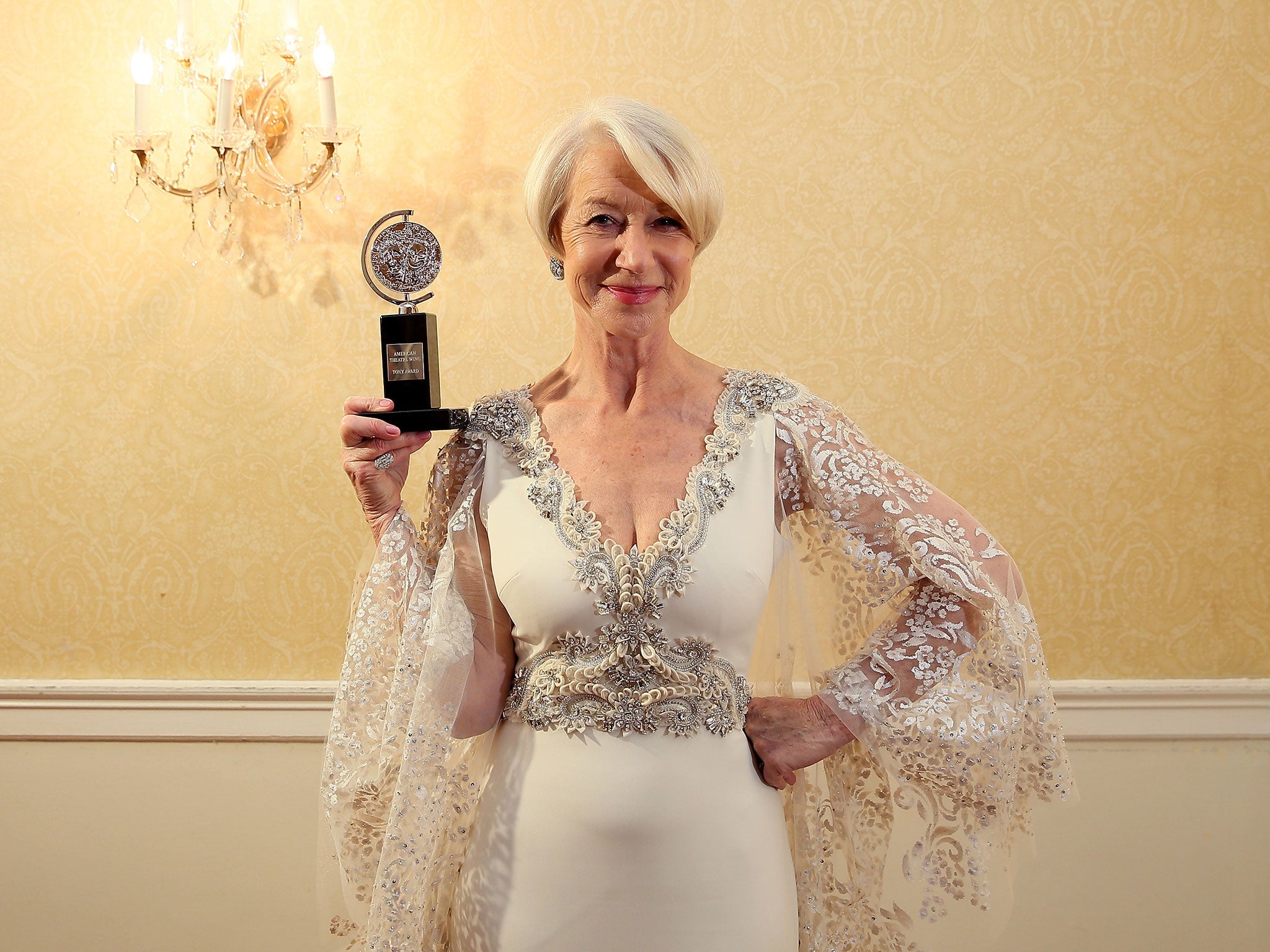Helen Mirren triumphs but does showbusiness really suck?
It’s good to hear an alternative view of acting from Brian Cox


Is being an actor glamorous and fun? Certainly most of the glimpses we have of the profession at play, and indeed at work, seem to imply that it is. The success of the Brits, Helen Mirren et al, at the Tonys in New York this week was not lacking in glam, glitz and the feelgood factor.
But receiving a lot less publicity was a speech a few days earlier which gave a startlingly different view of the acting profession. The veteran actor Brian Cox, himself garlanded with awards over the years, was speaking at a career retrospective in London and said: “This profession attracts the worst people. It attracts some of the best people, but it attracts many of the worst people. And they’re there, they’re like viruses.” According to a report in The Stage newspaper, he went on to criticse the casting of big-name stars to draw audiences, and the lack of accessibility in acting for people from poorer backgrounds. He went on: “I do not like this business. I like being in it, I like doing my job — I don’t like the business. I think the business sucks. Because it’s all run by people I have very little respect for.”
Don’t beat about the bush, Brian. Say what you really think.
It’s a sobering point of view after all the celebration of awards ceremonies. And it’s right that the Cox analysis is heard. But it’s also the case that the solutions to the depressing aspects of the profession lie with eminent actors like Cox. The people who run the business would have to listen if the likes of Cox, Mirren and others confronted them over such things as drama schools and casting directors not giving a fair chance to poorer people, ignoring seasoned professional for star names, ignoring actresses over a certain age for romantic roles (another thing Cox highlighted in his speech), and dare I mention the things those in the profession all too seldom speak out about — booking fees and the many hundreds of seats at West End theatres from which audience members can’t see properly.
Many aspects of the business suck, as Brian Cox puts it, but it is people like Brian Cox, who have esteem, respect and veneration, who can change the business. They must confront personally those people at the top of the business who make it suck, they must name and shame them, the same with drama schools which do too little for applicants from poor families. They must refuse to appear at venues which charge exorbitant and unjustified prices.
Brian Cox is absolutely right to draw attention to the profession’s failings. Now he must be part of the force for change.
The tedium of poetry parties and all that jazz
Perhaps more honesty is needed too about arts parties. The late Philip Larkin certainly pulled no punches on his view of them. A recently discovered letter by the poet reveals that he ruled himself out of consideration for the post of Oxford professor of poetry, because he couldn’t face the prospect of “a lot of sherry-drill with important people.” Larkin explained: “My idea of hell on earth (physical pain excepted, and I am not sure that it is excepted even in this case) is a literary party...” Why stop at literary parties? There are purgatorial evenings to be had at theatre, film and music parties. But the gatherings I fear the most are parties for jazz aficianados at jazz award ceremonies or after a jazz gig. All the anecdotes that are swapped concern obscure saxophonists and the like. The main purpose of a jazz party is to detect the imposter as soon as possible and humiliate him or her into leaving quickly. As I have had to do on more than one occasion.
Bristol gets to the heart of relaxing music
What is it about the classical music and the human body? Research published this week showed that certain music by Puccini, Verdi and Beethoven were more likely to lower blood pressure than pop, rock or jazz as the slow music with a 10-second repetitive cycle has a calming effect on listeners, because it matches the body’s natural 10-second waves of blood-pressure control. And now I see that the programme for this summer’s ever ambitious Bristol Proms will include the Sacconi Quartet creating an immersive audio and visual experience with Heartfelt, “where audience members will feel closer to the performers than ever before, through handheld devices mirroring the beat of the musicians’ hearts.” The good news is that it can’t be long before classical concerts get big-money sponsorship from international drug companies.
d.lister@independent.co.uk
twitter.com/davidlister1

Join our commenting forum
Join thought-provoking conversations, follow other Independent readers and see their replies